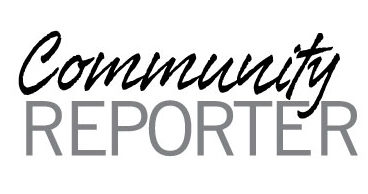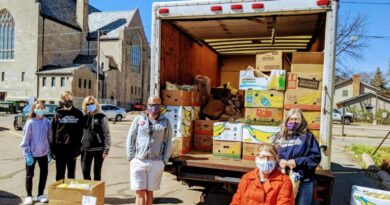Vaccines roll out for some — with dose of confusion
By David Lamb
The robo-calls from the United Family Medicine (UFM) clinic came in the late afternoon on January 19, saying there were vaccinations available at the facility for patients 65 and over. One patient of the clinic, Robin Fate, 71, called back immediately, as did one his family members, but neither of them could get through. “We got the tri-tone,” Fate said, “and a message from Verizon that the number had been disconnected.”
So Fate drove the clinic himself, where he found two people already waiting in line. “It was a husband and wife I happened to know, trying to get a shot,” Fate said. The administrator behind the desk told her that her husband could receive one because he had a preexisting condition but that she didn’t qualify because she had no such condition and was not yet 75 years old. Given the call Fate and other patients had received, welcoming those over 65 to get vaccines without other qualifications, he was confused. Soon, other arriving patients arriving in the wake of the automated call raised the issue, and the administrator spoke with a manager and set appointments for those in line.
Another patient, who wished to remain anonymous, called the clinic the following morning. “The line wouldn’t go through,” she said, trying again several times until she heard a response and was put on hold for 30 minutes. Eventually, an administrator fielded the call, asking who the patient’s doctor was. When she answered, she was informed that her that her doctor had left the organization—one of the thirteen faculty physicians who moved with the residency program to the Allina United Family Physicians clinic in January—and was told she needed to have a doctor at the clinic if she wanted a shot. “I don’t want to leave my doctor,” the patient countered.
“After that,” she told the Community Reporter, “they hung up.”
The patient sought out the advice of a trusted medical professional and then called the clinic back. This time, when she was asked who her doctor was, she said she didn’t have one. She was assigned one at the clinic and scheduled for her first vaccine shot. “I had some moral question about it,” she said, “because it felt like you could get in if you’re willing to sit on hold for half an hour while an older person who might need the vaccine more but may not have the time or patience wouldn’t.” She pondered if she could covertly give the appointment to a friend suffering from cancer. But a family member who works in medicine convinced her to get the shots herself.
As the first eligible populations receive vaccinations across St. Paul and the nation, health-care professionals and patients have encountered hiccups and confusion, sometimes waiting outside for hours only to be told supplies had run out. Because of a range of challenges, only 2.1 million doses were administered to people in nursing homes and long-term-care centers in the U.S. last year, according to the CDC, nearly 18 million below the institute’s target.
Reached for comment about the reports of patients struggling to schedule vaccines or being turned away for not choosing the clinic for primary care, a representative for UFM directed the newspaper to a statement from clinic CEO Ann Nyakundi, which acknowledged challenges but commended the nurses, community health workers and schedulers on staff who “safely and efficiently arrange[d] to vaccinate as many as 200 patients a day last week, the most of any community clinic in the state.” Nyakundi invited patients who meet the state’s vaccination criteria to call 651-241-1000 to be placed on a vaccine waitlist.
As patients jump at the opportunity, some felt the January 19 scene at the UFM clinic spoke to the failures of the national vaccine program and portended an unwelcome future for a community clinic recently rocked by controversy. “It’s easy to see how the changes are affecting the kind of care that people in the West End are going to get,” Fate said, referring to the parting ways of between UFM and its residency program, previously reported in this paper. “People are being hoodwinked by that clinic’s leaders.”
Editor’s note: Jonathan Dickman, chair of the Community Reporter‘s board of directors, is a faculty physician at the United Family Medicine Residency Program, which had been housed at UFM until 2021. Resident physicians in that program are the rotating authors of the Community Reporter‘s Healthline column.




